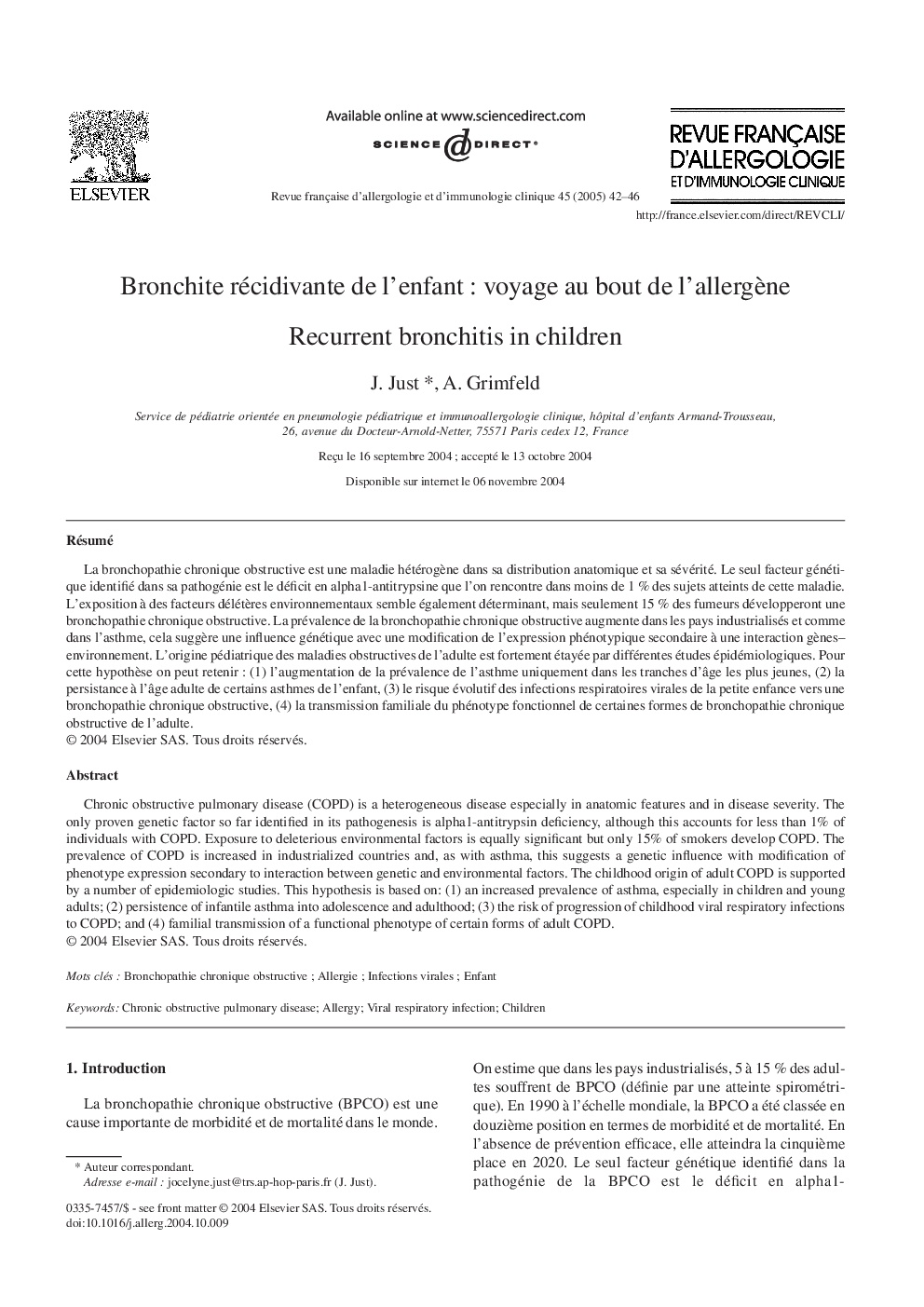| Article ID | Journal | Published Year | Pages | File Type |
|---|---|---|---|---|
| 9100243 | Revue Française d'Allergologie et d'Immunologie Clinique | 2005 | 5 Pages |
Abstract
Chronic obstructive pulmonary disease (COPD) is a heterogeneous disease especially in anatomic features and in disease severity. The only proven genetic factor so far identified in its pathogenesis is alpha1-antitrypsin deficiency, although this accounts for less than 1% of individuals with COPD. Exposure to deleterious environmental factors is equally significant but only 15% of smokers develop COPD. The prevalence of COPD is increased in industrialized countries and, as with asthma, this suggests a genetic influence with modification of phenotype expression secondary to interaction between genetic and environmental factors. The childhood origin of adult COPD is supported by a number of epidemiologic studies. This hypothesis is based on: (1) an increased prevalence of asthma, especially in children and young adults; (2) persistence of infantile asthma into adolescence and adulthood; (3) the risk of progression of childhood viral respiratory infections to COPD; and (4) familial transmission of a functional phenotype of certain forms of adult COPD.
Keywords
Related Topics
Health Sciences
Medicine and Dentistry
Anesthesiology and Pain Medicine
Authors
J. Just, A. Grimfeld,
